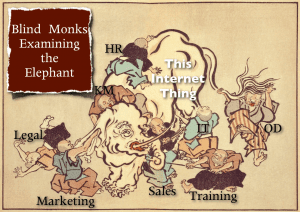
ETF Definition? What’s an ETF?
Updated April 15, 2024
Introduction:
Exchange-traded funds (ETFs) have emerged as a pivotal force in modern investing, empowering investors with a dynamic and flexible approach to portfolio diversification. This innovative investment vehicle blends the advantages of stocks and mutual funds, offering access to a vast array of assets with the trading capabilities of stocks.
ETFs provide investors a strategic toolkit for navigating today’s complex financial markets. Like a financial chameleon, ETFs adapt to diverse scenarios, mirroring specific indexes or sectors. They offer instant diversification, transparency, and liquidity, enabling investors to seize opportunities and manage risks effectively.
Imagine an ETF as your financial compass, guiding you through the ever-changing investment landscape. With ETFs, you gain exposure to carefully curated baskets of assets, from stocks and bonds to commodities, all traded with the flexibility of individual stocks.
The allure of ETFs lies in their efficiency and convenience. They simplify the complex investing world, providing access to a diverse range of assets through a single transaction. Additionally, ETFs offer intraday trading capabilities, allowing investors to react promptly to market conditions.
Transparency is a cornerstone of ETFs, with daily disclosures of holdings empowering investors to make informed decisions. This blend of diversification, liquidity, and transparency has made ETFs a favoured choice for investors seeking dynamic market participation.
Understanding ETFs: A Historical Perspective
Exchange-traded funds (ETFs) can be likened to a financial evolution, providing investors with expanded opportunities and flexibility. The rise of ETFs has disrupted traditional investing, much like Socrates’s revolutionary ideas, which encouraged individuals to “know thyself.” This self-knowledge is essential for investors to define their goals and navigate the ETF landscape effectively.
The concept of diversification is not new. The Medici family, renowned for their banking prowess during the Renaissance, understood the value of diversifying their ventures. They established a diverse network of branches across Europe, reducing their exposure to regional risks. This medieval diversification strategy resonates with the benefits offered by ETFs today.
Charlie Munger, Warren Buffett’s esteemed business partner, underscores the importance of diversification in investing. Munger’s wisdom, “All I want to know is where I’m going to die, so I’ll never go there,” highlights the need to spread risk and avoid potential pitfalls. ETFs provide a modern tool to achieve this diversification.
The Psychology of Investing: Mass Behavior and ETFs
Investing is not just a numbers game; it involves understanding human behavior and market psychology. Mass psychology plays a significant role in the dynamics of financial markets, and ETFs are no exception.
Sir John Templeton, a legendary investor, once said, “The time of maximum pessimism is the best time to buy, and the time of maximum optimism is the best time to sell.” This quote underscores the importance of contrarian thinking and going against the herd. ETFs provide an excellent vehicle for investors to apply this principle.
ETFs offer a window into mass psychology by tracking various indexes or sectors. When investors’ sentiment turns overly pessimistic, it may signal a buying opportunity. Conversely, when euphoria takes hold and the masses are excessively optimistic, it could be a warning sign to sell.
ETFs provide a unique perspective on market sentiment. Investors can gauge the market’s mood by observing the flow of funds into and out of specific sectors or asset classes. For example, an influx of funds into tech-focused ETFs may indicate growing optimism about the industry’s prospects.
Contrarian investors can use ETFs to capitalize on market inefficiencies driven by mass psychology. By going against the crowd and buying when fear is high or selling when euphoria sets in, investors can profit from the errors of the masses.
The ETF Advantage: Diversification, Liquidity, and Transparency
– Diversification: ETFs offer instant exposure to a basket of carefully selected assets, mirroring specific indexes or sectors. This mitigates the risk associated with individual securities, providing a well-balanced portfolio.
– Liquidity: ETFs can be traded throughout the day, allowing investors to react to market conditions promptly. This intraday trading feature enables better timing of purchases and sales, providing flexibility and control.
– Transparency: Daily disclosure of ETF holdings empowers investors with knowledge about their investments, facilitating informed decision-making and price discovery.
The ETF Revolution: Broadening Investment Horizons
– Choice and Selection: The vast ETF market provides investors with an extensive selection of funds covering diverse market segments, investment strategies, and asset classes. This choice fosters competition, leading to lower costs and improved offerings.
– Convenience and Accessibility: ETFs are widely available through brokerages, retirement accounts, and investment platforms, making them accessible to many investors. The ability to trade during market hours adds to their convenience.
A Historical Perspective: From Mutual Funds to ETFs
The evolution of ETFs can be likened to a financial revolution, providing investors with a treasure chest of opportunities. Charlie Munger, the renowned investor and business partner of Warren Buffett, once said, “All I want to know is where I’m going to die, so I’ll never go there.” This quote underscores the importance of diversifying one’s investments, a key advantage ETFs offer.
The Medici family, renowned for their banking and financial prowess during the Renaissance, understood the value of diversifying their investments. They established branches across Europe, reducing their exposure to any venture or region’s risks. This medieval diversification strategy aligns with the modern benefits provided by ETFs.
The ETF Journey: A Practical Guide
Understanding how to invest in ETFs is a crucial step towards financial empowerment. Socrates’ famous quote, “Know thyself,” resonates here, as successful investing begins with self-knowledge. Define your investment goals, risk tolerance, and time horizon.
Step-by-Step Guide to ETF Investing:
– Determine your investment goals and risk profile.
– Research and analyze ETFs based on underlying assets, performance, and fund management.
– Select a reputable brokerage offering a diverse range of ETFs.
– Open and fund your brokerage account.
– Place orders for specific ETFs, considering market conditions and your investment strategy.
– Monitor and manage your ETF holdings regularly, rebalancing when necessary.
– Stay informed and adapt your strategy as markets fluctuate.
Benefits and Risks: Weighing the Scales
Advantages:
Low Costs: ETFs generally have lower management fees and trading costs than actively managed mutual funds.
Tax Efficiency: ETFs’ in-kind creation and redemption process can minimize taxable events and potential tax liabilities.
Flexibility: ETFs offer various investment strategies, covering various asset classes and sectors.
Accessibility: ETFs are easily accessible through brokerage accounts and retirement plans, catering to individual and institutional investors.
Risks:
Liquidity Risk: Low trading volumes may lead to wider bid-ask spreads and challenges in buying or selling shares.
Tracking Error: ETFs may not perfectly replicate the performance of their underlying index due to fees and transaction costs.
Counterparty Risk: ETFs using derivatives or securities lending expose investors to the risk of counterparties failing to meet obligations.
Overconcentration Risk: Sector-specific or region-specific ETFs carry higher risks due to concentrated exposure.
Final Thoughts: Embracing the ETF Revolution
In conclusion, ETFs have revolutionized investing, offering diversification, liquidity, and transparency. They provide investors with a powerful tool to access various asset classes and investment themes. However, it is essential to understand the risks, conduct thorough research, and align ETF selections with your financial goals.
As Sir John Templeton wisely stated, “The time of maximum pessimism is the best time to buy, and the time of maximum optimism is the best time to sell.” ETFs provide investors with the flexibility to act on such opportunities, making them a compelling choice in the dynamic world of finance.
Unearth Unique and Valuable Reads

Aroon Indicator: An Essential Tool for Technical Analysis

Gold Price Forecast: Anticipating a Breakout or Bust?

Trump’s Involvements in Russia

Decoding OVV Stock Price: Patterns, Gains, and Insights

The Power of Cash: Why ‘Cash Is King’ During a Recession

Reflation Rebuttal?

The Rise of China and the Decline of America?

Succinic Acid: Powering Sugar Control, Energy, and Inflammation

Fearmongers Unveiled: Parasites Profiting from Your Fear

Silver Price Forecast: Ignore Fear Mongers, Embrace Facts

Bear Market History: Navigating the Ebb and Flow of Markets

Exposed: Gold Market Manipulation by Central Bankers

Price to Sale Ratio Meaning: Unveiling its Significance

Vulgar Words: A Psychological Perspective



